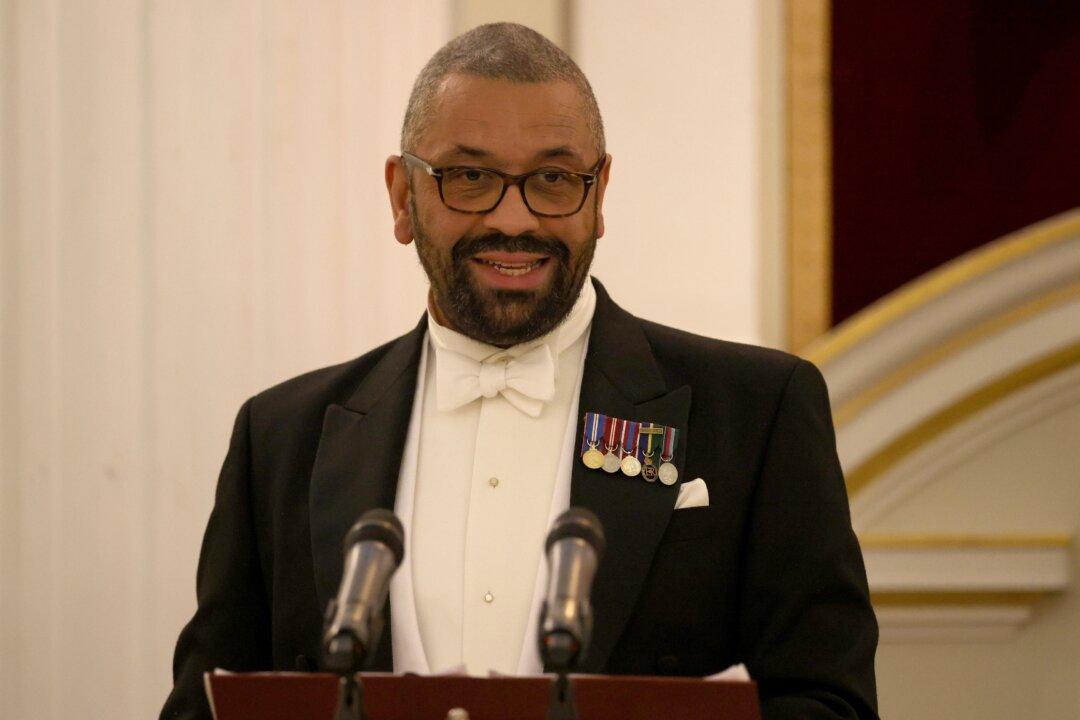
Foreign Secretary James Cleverly delivers a speech during the Easter Banquet at Mansion House in London on April 25, 2023. Dan Kitwood/Getty Images
British Foreign Secretary James Cleverly said in a major policy speech on Tuesday that it would be a mistake to declare a new Cold War with China.
It comes six weeks after the UK published its updated foreign and defence policy strategy, labelling China an “epoch-defining challenge.”





